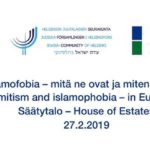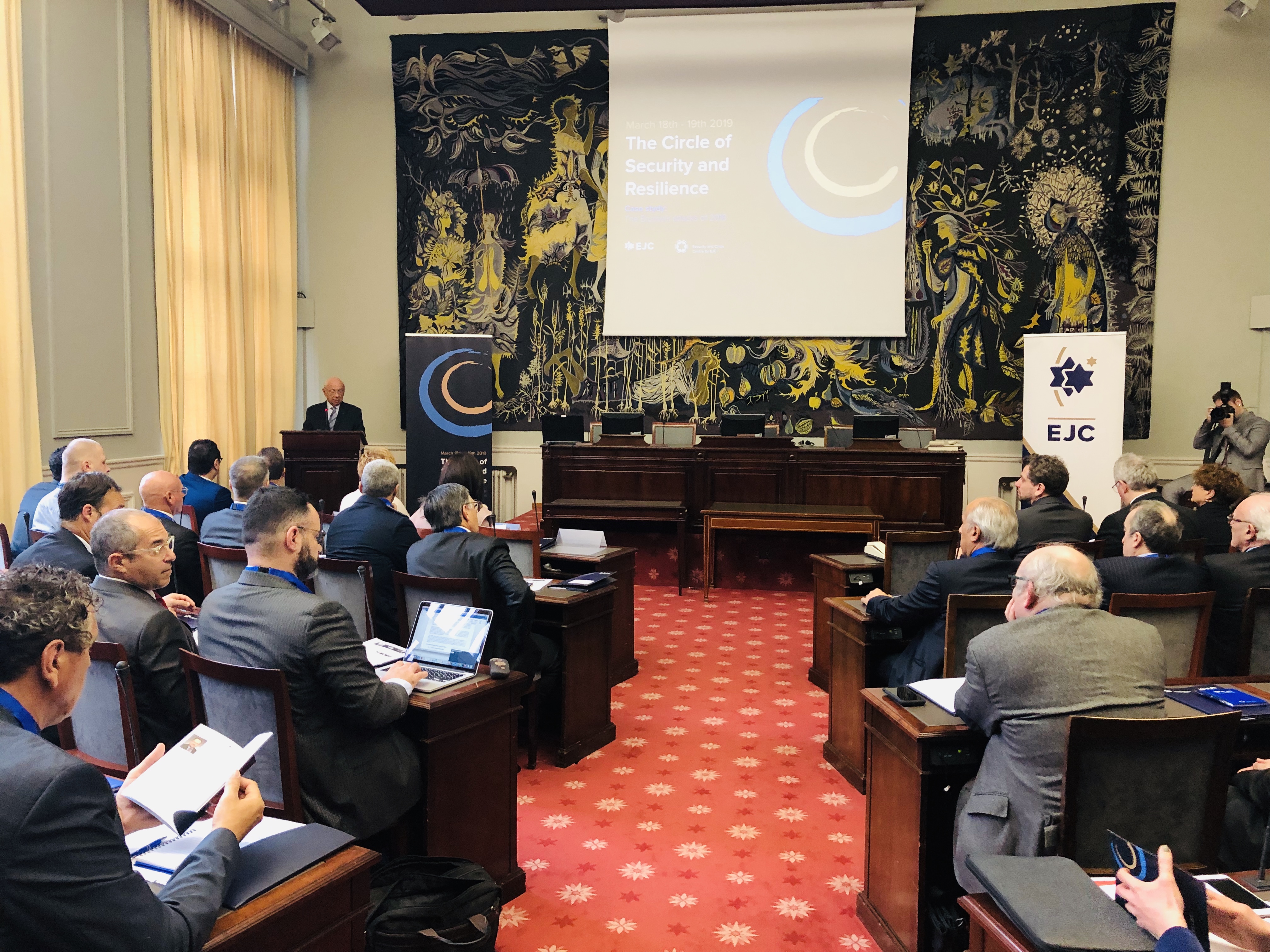(Brussels, Tuesday, 19th March 2019) – The European Jewish Congress’ Security and Crisis Center (SACC) held a unique conference in the Belgian Senate today bringing together heads of security and Jewish community leaders with high ranking law enforcement, judicial, political and security experts from 24 countries across Europe.
Major European partners and authorities, including EUROPOL, CEPOL, DG Home, EU CTC, EJTN, European Parliament, Federal Belgian Police, were among those in attendance.
The two-day event, titled “The Circle of Security and Resilience”, was hosted by the President of the Belgian Senate Mr. Jacques Brotchi and the participants studied the case of the Brussels attacks of March 22nd 2016 (Zaventem Airport and Metro Station Maelbeek) from different angles: Intelligence, Law Enforcement, Technology, Education, Crisis Management, Legislative and Political, Hate Crime and Antisemitism. Through panels and presentations, the speakers and the attendees shared their experience, challenges and best practices.
“The objective of this conference is to improve the knowledge and cooperation among stakeholders to improve security for all the European citizens,” said Dr. Moshe Kantor, President of the EJC. “Our vision is to share our knowledge and experience with all EU and European organizations, and to ensure that European Jewish organizations are in close contact with the relevant authorities to stop the spread of hate, racism and antisemitism.”
“Only by working as a network can we prevent the next attack or at least ameliorate its effects.” Kantor added.
Amongst the speakers at the conference were Ms. Katharina von Schnurbein, European Commission Coordinator onCombatting Antisemitism, Mr. Detlef Schröder, Executive Director of CEPOL (The European Union Agency for Law Enforcement Training), Ms. Eva-Maria Engdahl, Head of the Protection Sector in the Terrorism and Radicalisation unit of DG Migration and Home Affairs, Mr. Gianluca Andreini, Lieutenant Colonel of Italian State Police, Mr. Wojciech Postulski, Secretary General of European Judicial Training Network EJTN and Mr. Paul Giannasi, who leads the UK cross-government Hate Crime Programme and author of the 2014 Police Hate Crime Manual which offers guidance to all UK police officers and partners.
The experts discussed how to meet the various challenges and areas of security including, law enforcement, technology, security awareness, crisis management, legislative and political and hate and Antisemitism crimes.
Opening addresses were delivered by President of the Belgian Senate Mr. Jacques Brotchi, EJC’s Executive Vice President and CEO Raya Kalenova and SACC CEO Ophir Revach.
“Regrettably, in today’s Europe, security awareness, crisis management and resilience are everyone’s concern. Through our painful experience, we had no choice but to innovate and develop vital expertise in these fields, and because of our commitment to European society, we want to share this expertise for the benefit of all. We share so many values and common interests and have much to learn from each other,” said EJC’s Executive Vice President and CEO Raya Kalenova. “Especially after the terrorist attack in Christchurch, and more recently, in Utrecht, we must be more vigilant and understand that the threat of terror is a sad reality for all, so it is vital we all work together.”
“In light of dramatic changes that the entire European continent is experiencing, including the significant increase in antisemitic incidents, the rise of the extreme right and the growing violence online, it is essential, today more than ever, that we cooperate and unite our efforts in order to fight back against this worrying course of events, ensure that this continent remains a beacon of progress and human rights, and provide our children with a safer future,” added Ophir Revach, the CEO of SACC.
SACC is a Brussels-based highly qualified team of crisis management experts providing assistance and support during crisis events, like a terror attack or a natural disaster.Originally designed to ensure the safety of European Jewish communities, it now consults with governments, emergency response teams and intelligence agencies across the continent, assisting Europeans regardless of nationality or religion, and have become leading experts in this field.






